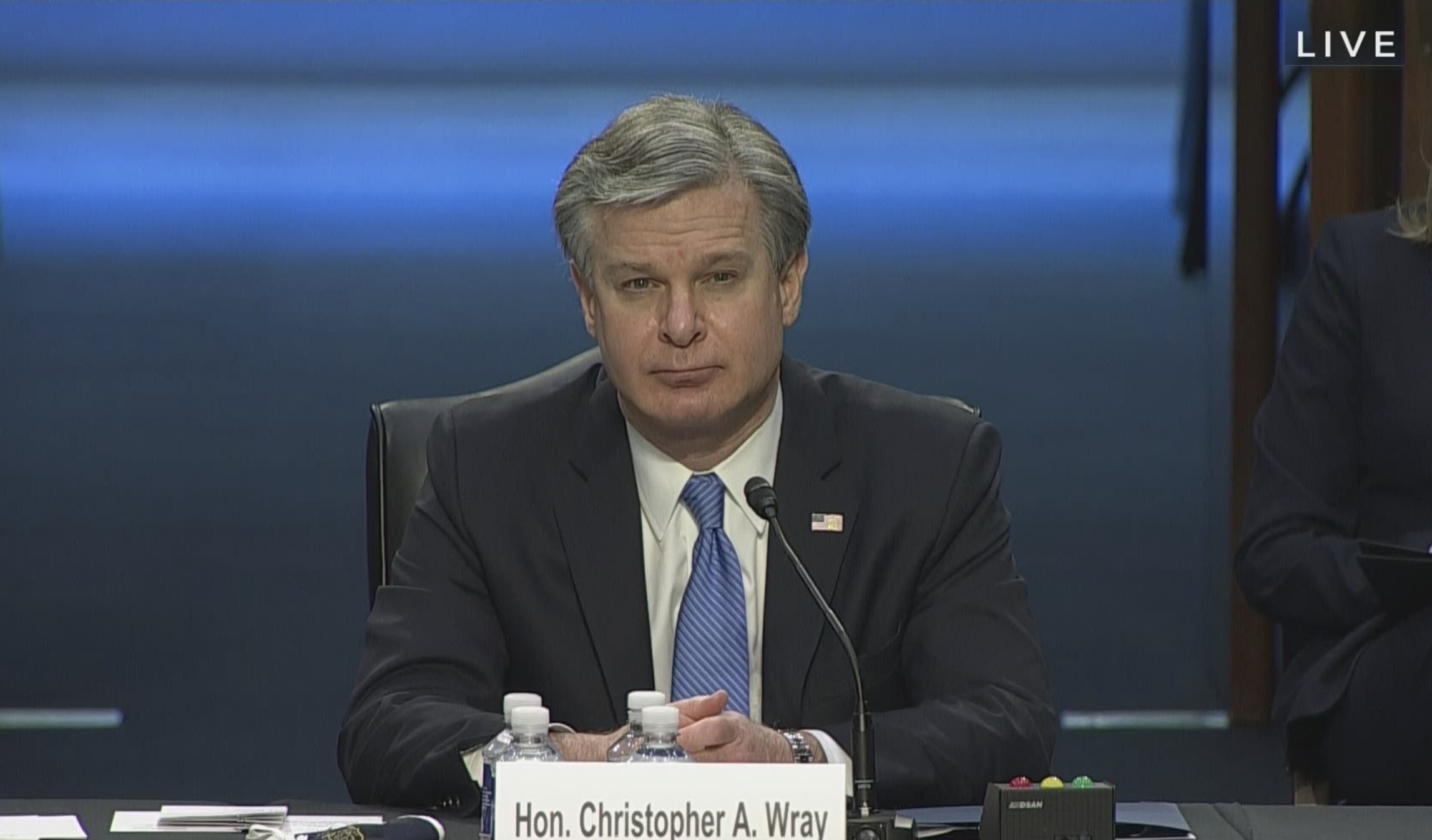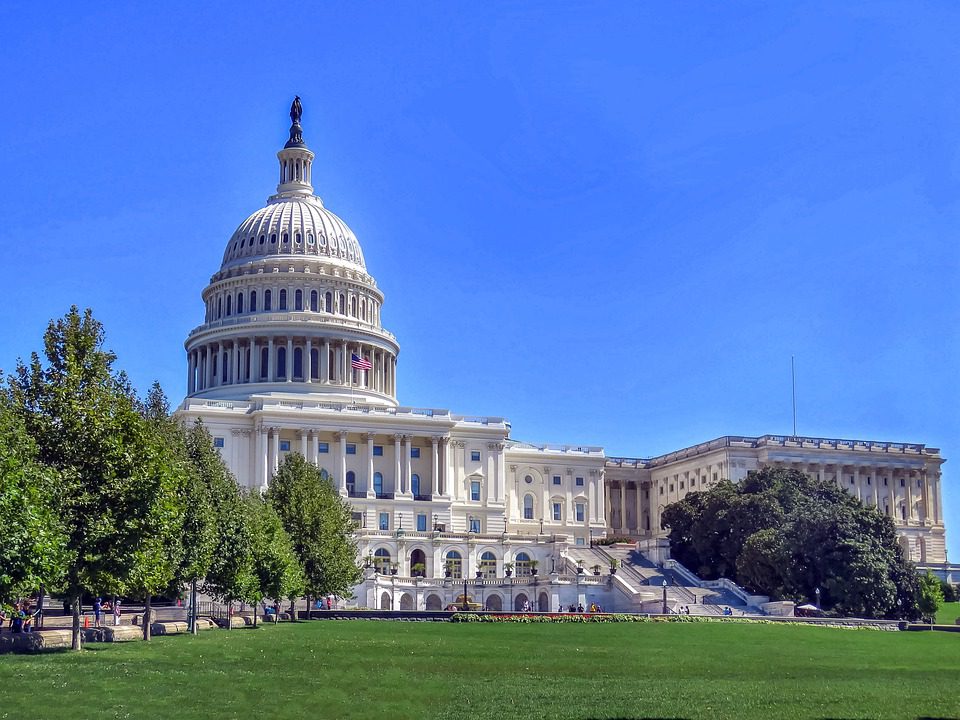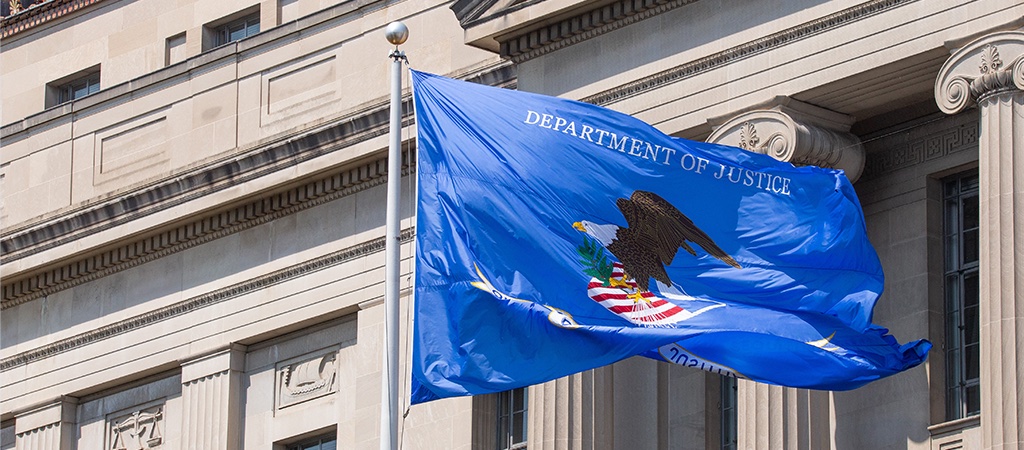This is the first of thirteen issues selected by our members and resulting from a nationwide faith and values study called Vital Signs.
Each week, we will cover a new topic with in-depth insights and biblical perspective in order to encourage, equip, and inspire praying Americans leading up to the 2020 Election.
Rule of law / Constitutional Adherence and Judicial Nominations
In a nation where rule of law is a guiding principle, all persons, institutions and entities are accountable to laws that are publicly promulgated and equally enforced. In the United States of America, the Constitution together with its amendments has established the function of the government and the fundamental governing law under which the government operates.
Congress promulgates the laws, the Executive Branch is charged with administering the laws with equity, and the courts of America are the arbiters of those laws. As the highest court in the land, the Supreme Court is charged with ensuring the American people are afforded equal justice, making it function as guardians and interpreters of the Constitution and the laws of the United States.
Prevailing attitudes of many in America, i.e., the nation’s world view.

Engraved on the West Pediment, above the front entrance of the United States Supreme Court building in Washington, D.C., is “Equal Justice Under Law.”
In recent weeks, following the death of George Floyd under the knee of a policeman in Minneapolis, protesters have arisen across America, many employing violence, seeking “equal justice under the law.” Most Americans will admit to being angry and appalled at Mr. Floyd’s death.
Former Secretary of Defense James Mattis wrote that protesters are “rightly demanding” a country that commits to “equal justice under the law.” He urged that people not be distracted by “a small number of lawbreakers” compared to the “tens of thousands of people of conscience” making this “wholesome and unifying demand.”
The First Amendment to the United States Constitution provides for freedom of speech and for people to “peaceably assemble” and to petition the Government for a redress of grievances. In the 1988 case of Texas v. Johnson, the Supreme Court held that the First Amendment protected flag burning as symbolic, and thus free, speech.
Now protesters are claiming that the destruction of monuments and taking over parts of cities are just an extension of that same free speech. “The systematic destruction of public art is now often rationalized as the natural release of anger by those who have been silenced or marginalized, according to one opinion writer.
Another writer said, “The U.S. Constitution’s First Amendment guarantees the right of citizens to peacefully assemble, but not to destroy private or public property. What we are seeing in America is mob rule because some elected leaders capitulate to a mob. Until citizens hold them accountable at the ballot box, America’s system of government is doomed.”
Many are now saying that the voices on racism have been drowned out by voices of Marxist adherents, and the messages of the protesters are no longer racism or marginalized parts of society, nor is it about police reform , it’s about control.

In 1963, Americans watched on television as areas around the country collapsed under a wave of protests that were met with what at the time was officially-sanctioned violence. That racial divide energized President John F. Kennedy to work toward his idealistic New Frontier…but one that, despite Constitutional assurances to the contrary, second-class citizenry was all that African Americans could hope for. Dr. Martin Luther King and others organized non-violent protests. Dr. King had an enormous following, and many Americans of every race will remember his “I Have a Dream” speech when he said, “I have a dream that my four little children will one day live in a nation where they will not be judged by the color of their skin but by the content of their character.”
Supreme Court decisions, where provisions of the Constitution must be upheld, are subject to many methods of interpretation. A plain meaning, or textualism, sticks with the words as written, often looking at the original meanings intended by the Founding Fathers. Other justices take a pragmatic approach, weighing the probable practical consequences of one interpretation against another. Historical—and contemporary—practices often outweigh judicial precedent. Thus, for some, the Constitution means what it says it means; for others, the Constitution means what society and the Supreme Court says it means.
Justices are pledged to pursue justice by applying the law without a partisan agenda. Challenges to electoral maps and highly-charged social issues reveal that the justices are not without partisan opinions. All federal judges, including Supreme Court Justices, receive lifetime appointments. In 2007, Supreme Court Chief Justice John Roberts said, “Politics are closely divided. The same with Congress. There ought to be some sense of some stability, if the government is not going to polarize completely. It’s a high priority to keep any kind of partisan divide out of the judiciary as well.”
According to years of watching the Court by the Gallup Polling group, in general Americans until 2017 thought the Supreme Court was too liberal. In September 2019, a near majority thought the balance of the court was “about right” but more felt it was too conservative over too liberal, 33%-17%. In March 2020, with religion-related hearings on the horizon at that time, Christians in America viewed the court favorably (69%). Again, according to Pew Research, a majority of Americans now say the Supreme Court should base its rulings on what the Constitution means in current times, while 41% say rulings should be based on what it “meant as originally written.” The ideological differences tend to follow partisan lines.
American presidents appoint federal judges. They are vetted by the Senate Judiciary Committee and voted up or down on the floor of the Senate. President Trump has successfully appointed more federal appeals court judges in his presidency than did the prior two presidents at the same point in their administrations, leaving a considerable imprint on the nation’s federal courts.
What the Bible has to say:
When it comes to the rule of law, Romans 13:1-2 says, “Let every person be subject to the governing authorities. For there is no authority except from God, and those that exist have been instituted by God. Therefore whoever resists the authorities resists what God has appointed, and those who resist will incur judgment.”
This verse says it is God who influences elections and elected officials; believers need to follow the law of the land; those who refuse to obey will be punished.
The Bible also says in Proverbs 6:16-19, “There are six things that the Lord hates; seven that are an abomination to him: haughty eyes, a lying tongue, and hands that shed innocent blood, a heart that devises wicked plans, feet that make haste to run to evil, a false witness who breathes out lies, and one who sows discord among brothers.”
To hate what God hates gives permission to disobey the laws that require you to do otherwise, many theologians say.
In 1 Peter 2, God’s Word says, “Be subject for the Lord’s sake to every human institution, whether it be to the emperor as supreme, or to governors as sent by him to punish those who do evil and to praise those who do good. For this is the will of God.” Later, Peter writes, “Live as people who are free, not using your freedom as a cover-up for evil, but living as servants of God.”
When God gave the law in Deuteronomy, he instructed that there be judges and courts, as it says in Deuteronomy 1:16, “And I charged your judges at that time, ‘Hear the cases between your brothers, and judge righteously between a man and his brother or the alien who is with him.’”
Equality under the law is evidenced in James 2, and in Leviticus 19:15, which says, “You shall do no injustice in court. You shall not be partial to the poor or defer to the great, but in righteousness shall you judge your neighbor.” Psalm 67:4, says, “Let the nations be glad and sing for you, for you judge the peoples with equity and guide the nations upon earth.”
YOUR RESPONSE
- Pray that God would guide you into His truth and His perfect will as it relates to these three areas.
- Seek wisdom from the Lord regarding your own position on how the Constitution should be interpreted or adhered to.
- Intercede for our country’s judges to dispense justice with knowledge and insight tempered with mercy.
- Pray for America as the nation deals with the rule of law and how it is applied.
- Ask God to help you discern which of the people who want to be elected at national or state levels align with the position you have—with God’s wisdom—adopted as your own.










